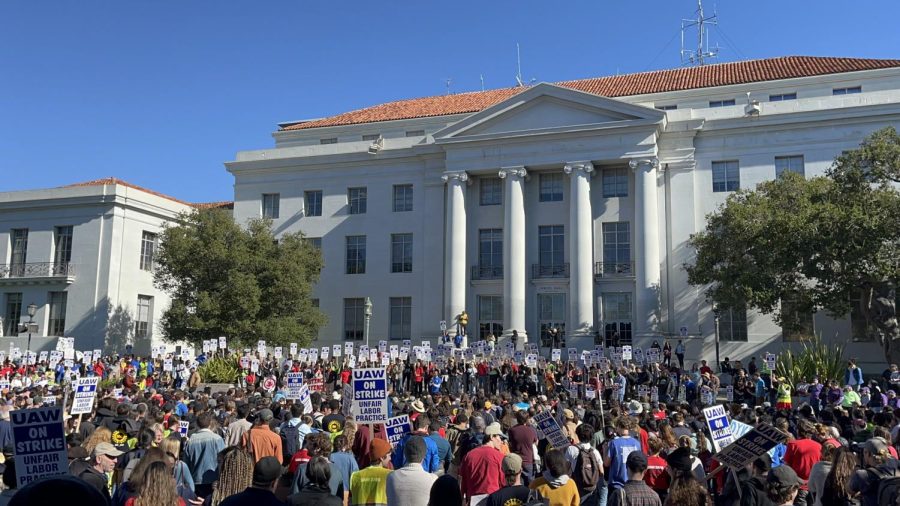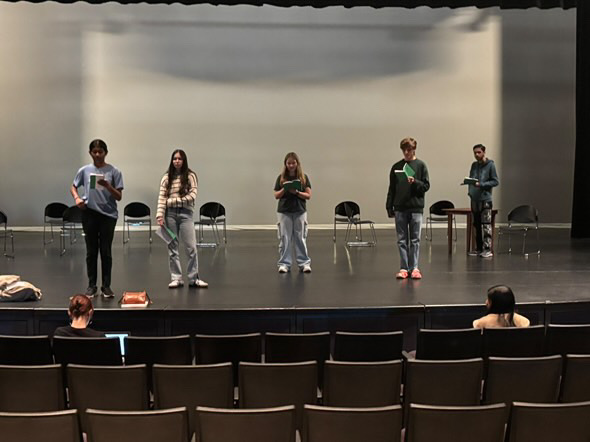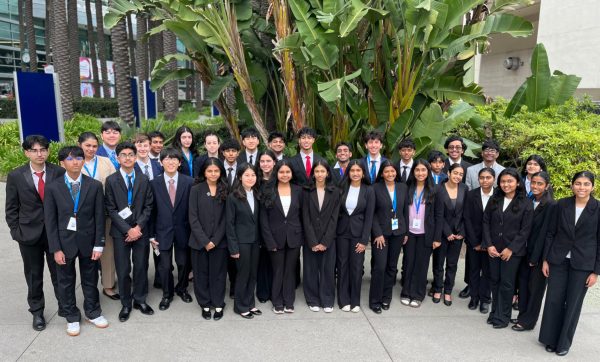The UC System: A Need for Change
With final exams coming up soon and the semester coming to an end, students attending any of the University of California’s nine schools are now facing a new challenge. Since November 14th 2022, over 48,000 student instructors, teaching assistants, and researchers have taken part in a strike spanning across the UC system. With an indefinite end, strikers have made it clear they refuse to back off until their needs for higher wages and better healthcare, among other things, are met. However, this strike brings up other concerns regarding the rest of the community. Are these student instructors’ needs really attainable and worth it? How is this strike affecting the students and professors? How is the situation making people feel? With all these questions surrounding the strike, one thing is certain. The UC system is in need of a change.
Nearly all of the campuses are located in high-end areas where rent and cost of living are expensive. Because of this, along with the already meager income of these student workers, a large portion of what these student instructors are fighting for is higher income. According to news officials, “strikers are asking that base salaries for all academic student employees go from 24,000 to 54,000” (Westervelt 6). Although this jump in salary may seem unreasonable, it is possible that this request is necessary, as the cost of living is continuously on the rise.
For example, in an interview with The New York Times, Anoop Praturu, a third-year doctoral student in biophysics at UC San Diego, explained that he “alternated between crashing on friends’ couches and sleeping in his car” and eventually found an affordable apartment 15 miles from campus. He then went on to explain how “after rent, food and gasoline, there isn’t much left of [his] $2,300 monthly paycheck.” By being unable to attain basic necessities, these student workers and assistants may be justified in their actions.
In addition to higher wages, student workers are also fighting for support for international students, better healthcare, more childcare benefits, and transit incentives. Once again, the rights they are fighting for are basic necessities that these graduated student workers (GSI’s) have been deprived of. Although it may seem like they are asking for a lot, considering the circumstances, these graduated students have justifications for their actions.
The GSI’s still play a key role in the UC system, and their disappearance has affected both students and professors alike. Although professors lead the lectures, the GSI’s provide and teach all other discussions, research, revisions, and extra help. Because of this, discussion classes have been canceled, leaving students with professors as their only resource. This brings up the question of whether to go to class at all, while also putting students in a hard situation. For example, Namrita Naveen, a former Wilcox student and current freshman at UC Berkeley, explained, “I’m not getting the help I want, because GSI office hours are unavailable and you can’t email [the GSI’s] either.”
These student workers help put the professor’s teaching into simpler terms and serve as a great resource for students to reach out to and receive help from. Tavleen Kaur, another former Wilcox student and freshman at UC Berkeley, explained that “the strikes have caused a lot of class cancellations, affecting a few of my classes personally. Without immediate access to GSIs, it has also been hard to complete some assignments.” Overall, the strikers’ inability to receive basic needs has thrown off the grading and learning system at the UC schools, causing students to struggle and feel negatively about the situation.
What about the professors? Professors normally have lighter workloads as much of the grading and explaining is done by student assistants. However, because they are on strike, professors must now face the challenges of extreme workloads, decide whether to cancel or continue classes, and work around the need to teach special courses on-campus. For example, UC Santa Cruz Professor Tamara Ball said “they shut down the main entrance…I was trying to take students on a field trip and we couldn’t get off campus so we had to drive up and around Felton to get to our destination.” Even to take her students on field trips, Ball had to take longer routes and change plans in order to work around the strike. Overall, the strike has negatively impacted the UC professors as well, and thrown off the regular system that they are used to.
With rent rising, classes being canceled, finals coming up, students getting anxious, and professors getting stressed, the UC system has been facing a lot of new problems in recent times. This strike is the largest student worker strike in history, and is a true reflection of the changes needed in the UC community. By increasing their benefits and income, the UC board of officials have the power to provide the student assistants with what they need and restore structure in the universities. However, until they reach a compromise, the UC system will still be in need of a change.






